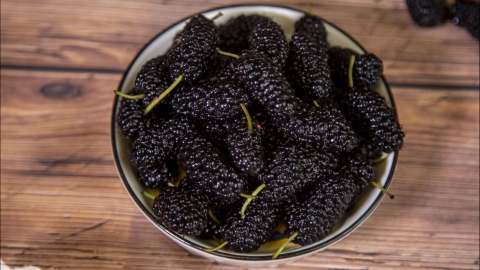Can I eat mulberries after eating seafood?
Generally speaking, you can eat mulberries after consuming seafood, but it is not advisable to do so immediately; it is better to wait for a certain period before eating mulberries.

For most people, there is no obvious food incompatibility between seafood and mulberries. Eating an appropriate amount of mulberries can supply nutrients such as vitamin C and iron, which are beneficial to health. Seafood is rich in high-quality protein, while mulberries contain vitamin C and dietary fiber; moderate consumption of both can complement nutritional intake.
However, attention should be paid to the fact that mulberries contain tannic acid, while seafood is high in protein. When consumed in large quantities together, the protein in seafood may combine with tannic acid from mulberries, forming substances that are difficult for the human body to digest and absorb. This may not only reduce the absorption rate of protein but also potentially cause discomfort symptoms such as abdominal distension and diarrhea. Therefore, it is recommended to wait for a certain interval—for example, 1–2 hours—before consuming them.
In terms of diet, it is recommended to eat more foods rich in protein, multiple vitamins, minerals, and other nutrients, such as eggs, lean meats, tomatoes, apples, etc., which can supply the body's required energy and help maintain overall health.
References:
[1] Yan Zixuan, Chen Haiyang, Hu Yunfei, et al. Research progress on chemical composition, pharmacological activity, and product development of mulberries[J]. Central South Pharmacy, 2025, 23(03): 690-699.
[2] Chen Anwei, Wang Yan, Wang Yutong, et al. Study on the use of mulberry red pigment as an acid-base reaction indicator[J]. Guangzhou Chemical Industry, 2025, 53(04): 40-42.




